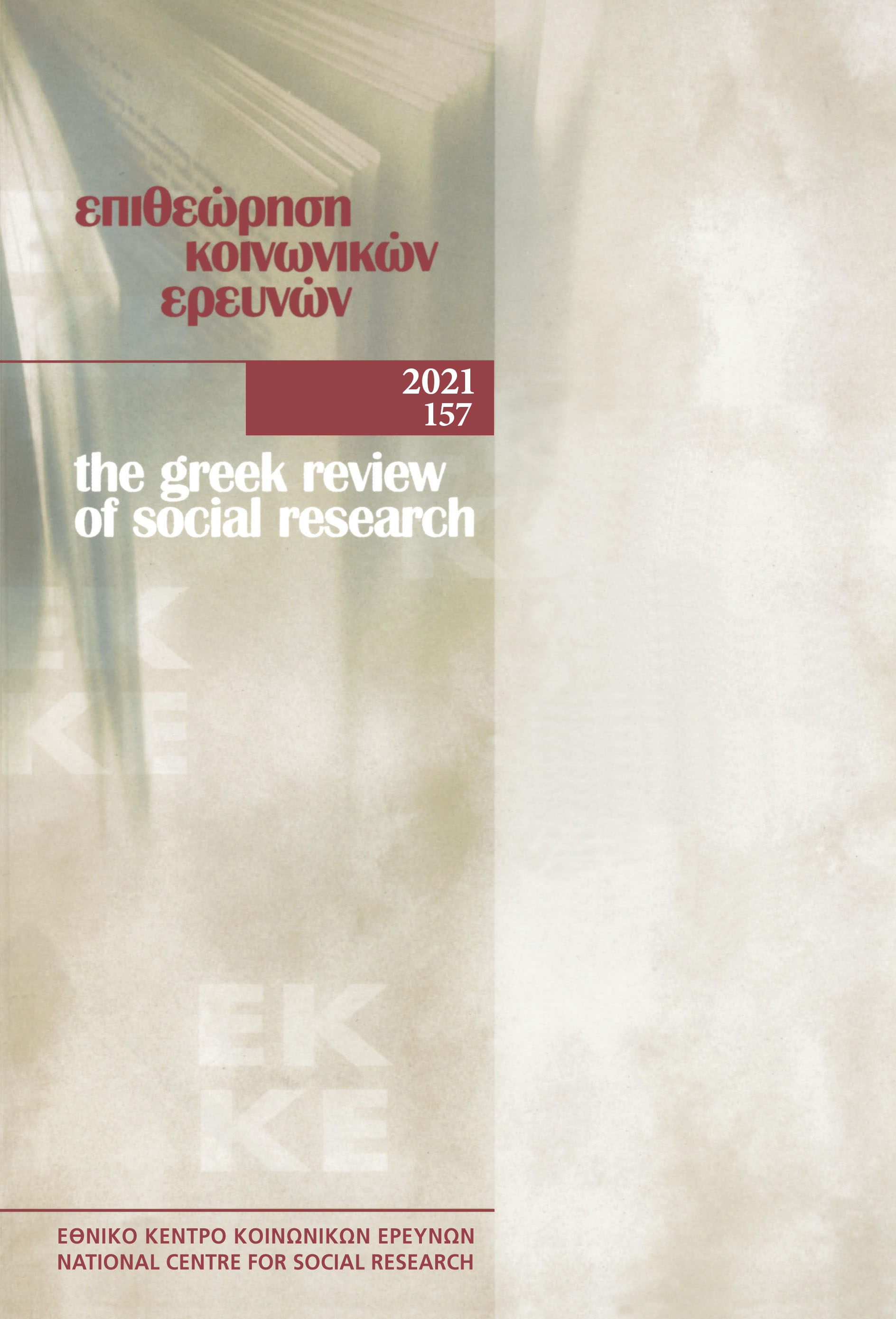Επιτέλεση και (μετα)ψηφιακές οντολογίες: ένα σχόλιο από τη σκοπιά της ανθρωπολογίας

Περίληψη
Το 2016 ο Causey εισήγαγε την έννοια «μεταψηφιακή επιτέλεση» για να περιγράψει έργα καλλιτεχνών οι οποίοι, όπως ισχυρίζεται, σκέφτονται ψηφιακά, ενσωματώνουν δηλαδή στα έργα τους δομικά στοιχεία του ψηφιακού, προκειμένου να αντισταθούν στα συστήματα ελέγχου των δικτύων της σύγχρονης μεταψηφιακής κουλτούρας. Με αφορμή την ανάλυση του Causey, η οποία αναπαράγει από τη σκοπιά των επιτελεστικών σπουδών (κυρίαρχες δυτικές) θετικιστικές αντιλήψεις για την οντολογία του ψηφιακού (αλλά και του ανθρώπινου), σε αυτό το κείμενο διερευνώ τους τρόπους με τους οποίους η οντολογική στροφή στην ανθρωπολογία, μπορεί να ρίξει φως σε ερωτήματα που αφορούν στην οντολογία του ψηφιακού, αποφεύγοντας ποικίλους παγκοσμιοποιητικούς ισχυρισμούς.
Λεπτομέρειες άρθρου
- Πώς να δημιουργήσετε Αναφορές
-
Lalioti, V. (2021). Επιτέλεση και (μετα)ψηφιακές οντολογίες: ένα σχόλιο από τη σκοπιά της ανθρωπολογίας. Επιθεώρηση Κοινωνικών Ερευνών, 157, 89–125. https://doi.org/10.12681/grsr.27619
- Τεύχος
- 2021: 157
- Ενότητα
- Άρθρα

Αυτή η εργασία είναι αδειοδοτημένη υπό το CC Αναφορά Δημιουργού – Μη Εμπορική Χρήση 4.0.
Οι συγγραφείς των άρθρων που δημοσιεύονται στην Επιθεώρηση Κοινωνικών Ερευνών διατηρούν τα δικαιώματα πνευματικής ιδιοκτησίας επί των άρθρων τους, δίνοντας στο περιοδικό το δικαίωμα της πρώτης δημοσίευσης. Άρθρα που δημοσιεύονται στην Επιθεώρηση Κοινωνικών Ερευνών διατίθενται με άδεια Creative Commons 4.0 και σύμφωνα με την άδεια μπορούν να χρησιμοποιούνται ελεύθερα, με αναφορά στο/στη συγγραφέα και στην πρώτη δημοσίευση για μη κερδοσκοπικούς σκοπούς.
Το Εθνικό Κέντρο Κοινωνικών Ερευνών διατηρεί το δικαίωμα να δημοσιεύει, να αναπαραγάγει, να παρουσιάζει στο κοινό, να διανέμει και χρησιμοποιεί άρθρα που δημοσιεύονται στην Επιθεώρηση Κοινωνικών Ερευνών σε οποιοδήποτε μέσο και μορφή είτε μεμονωμένα είτε ως μέρη συλλογικών έργων, για όλο τον χρόνο διάρκειας προστασίας της πνευματικής ιδιοκτησίας και για όλες τις χώρες του κόσμου. Αυτό περιλαμβάνει ενδεικτικά και όχι αποκλειστικά το δικαίωμα δημοσίευσης των άρθρων σε τεύχη της Επιθεώρησης Κοινωνικών Ερευνών, αναπαραγωγής και διανομής μεμονωμένων αντιγράφων των άρθρων, αναπαραγωγής ολόκληρων των άρθρων σε άλλη έκδοση του Εθνικού Κέντρου Κοινωνικών Ερευνών, καθώς και αναπαραγωγής και διανομής των άρθρων ή περίληψης αυτών με χρήση πληροφορικού συστήματος αποθετηρίου.


